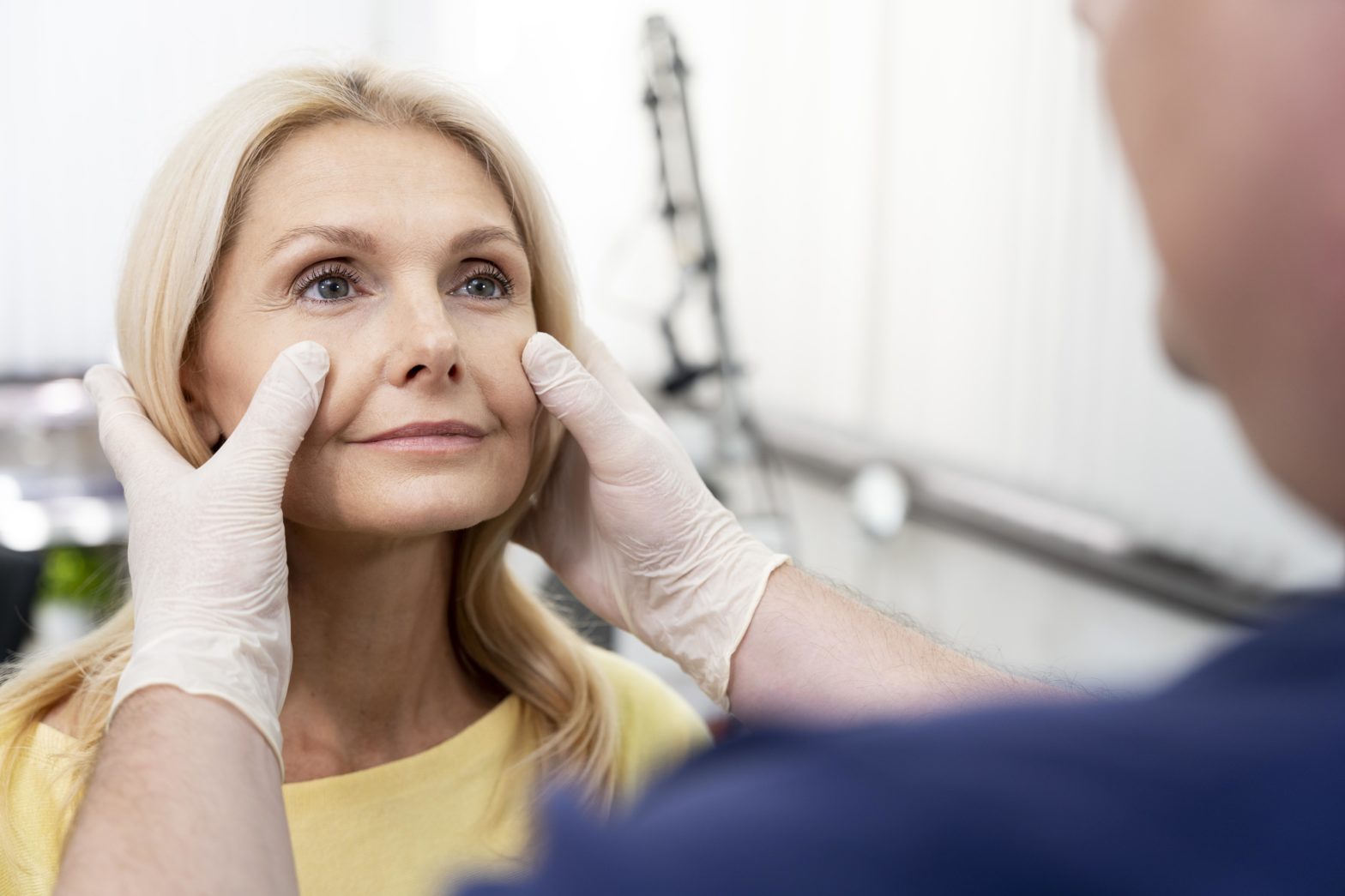Winter is a magical time of year, but as the temperatures dip and the air turns crisp, your eyes can feel the chill too. While you bundle up in layers of clothing and scarves, it’s easy to forget that your eyes need care too. The cold, dry air and biting winds can lead to various eye issues if not properly managed. But don’t worry—there’s plenty you can do to keep your eyes healthy and bright this winter. From moisture and hydration to the right protective eyewear, winter eye care is crucial for ensuring your eyes stay comfortable and free from irritation.
1. How Winter Affects Your Eyes
As the winter months roll in, it’s not just your skin that suffers from the elements; your eyes can also face unique challenges. While we often focus on body warmth and comfort, cold weather can wreak havoc on your delicate eye tissues. The dry, chilly air causes moisture to evaporate from the surface of your eyes, leading to dryness, irritation, and redness.
Cold wind is another common culprit. It can cause your eyes to tear up or feel gritty, and for some, it can trigger conditions like blepharitis (inflammation of the eyelids) or exacerbate existing dry eye syndrome. In fact, winter is one of the peak seasons for સૂકી આંખો, as central heating systems that keep our homes warm also strip moisture from the air inside. The result? Your eyes, which naturally need moisture to stay healthy, may feel irritated, tired, or even sore.
2. Dry Eyes in Winter: Causes and Symptoms
When winter arrives, dry eyes are among the most common complaints. With indoor heating systems running constantly, the humidity levels inside your home drop significantly, leaving your eyes parched and uncomfortable. Outdoor conditions don’t help either—wind, cold, and fluctuating temperatures all contribute to further moisture loss.
Symptoms of dry eyes can range from mild irritation to severe discomfort. Common signs include:
- Red, itchy, or burning eyes
- પ્રકાશ પ્રત્યે સંવેદનશીલતા
- A feeling of grit or sand in your eyes
- ઝાંખી દ્રષ્ટિ
- કોન્ટેક્ટ લેન્સ પહેરવામાં મુશ્કેલી
To combat dry eyes, it’s important to stay on top of your eye care routine, which leads us to the next crucial step.
3. Protective Eyewear: The Ultimate Shield Against the Cold
One of the best ways to protect your eyes in winter is by wearing the right protective eyewear. Cold winds and snowstorms can wreak havoc on sensitive eyes, causing dryness, redness, or even injury. A good pair of sunglasses or goggles will shield your eyes from the harsh elements, keeping your eyes moist and comfortable.
Wraparound sunglasses are an excellent choice as they help block wind and prevent particles from getting into your eyes. Many outdoor sports enthusiasts swear by protective goggles or specialized eyewear designed for winter activities like skiing or snowboarding. When shopping for winter eyewear, make sure to choose sunglasses or goggles that offer UV protection. UV rays can be just as harmful in the winter, especially when reflected off snow or ice, making it just as important to protect your eyes as it is in summer.
4. Keep Your Eyes Moisturized
One of the simplest yet most effective ways to care for your eyes in winter is by staying hydrated. The dry winter air dehydrates your body, and your eyes are no exception. Drinking plenty of water throughout the day helps maintain moisture levels in the body and, by extension, your eyes.
Artificial tears (lubricating eye drops) can also be your best friend in winter. These drops provide quick relief from dryness and irritation, helping to maintain the moisture balance on the surface of your eyes. Always opt for preservative-free eye drops to avoid irritation from chemicals.
5. The Power of Humidifiers: Combat the Dry Air Indoors
While you can bundle up to protect your body, indoor air can be just as damaging to your eyes. Central heating systems work wonders to keep us warm, but they also strip moisture from the air, causing a dry environment that exacerbates eye discomfort.
Using a humidifier in your home or office can help counteract the effects of dry indoor air. By adding moisture back into the atmosphere, a humidifier helps prevent your eyes from drying out and feeling gritty. Remember to clean your humidifier regularly to avoid the buildup of bacteria or mold, which could contribute to eye irritation or infection.
6. Clean and Clear: The Role of Eye Hygiene in Winter
Winter weather often brings about increased dust and allergens, which can irritate your eyes. To keep your eyes clear and comfortable, it’s essential to maintain proper eyelid hygiene. This can be particularly important during the winter months when conditions like blepharitis or meibomian gland dysfunction (MGD) are more likely to flare up.
A gentle daily cleaning routine, such as using warm compresses or lid scrubs, can help to clear debris and prevent the buildup of oils that can block your eyelid glands. For those who suffer from more severe symptoms, professional treatments like Intense Pulsed Light (IPL) therapy may be beneficial in managing eyelid dysfunction.
7. Winter Sports and Eye Safety: Don’t Let Fun Cause Injury
Winter sports offer plenty of excitement and adventure, but they also come with an increased risk of eye injuries. Whether you’re skiing, snowboarding, or ice skating, protective eyewear is a must. Flying snow, debris, or even a crash can result in serious eye injuries if you’re not adequately protected.
For skiing and snowboarding, choose goggles with UV protection and a snug fit to keep snow and wind out. If you’re not into winter sports but still plan to be outdoors for long periods, wearing sunglasses that block both UV-A and UV-B rays is essential. Snow can reflect up to 80% of UV rays, so even on overcast days, you’re still at risk.
8. Sun Protection in Winter: Don’t Let the Winter Sun Fool You
It’s easy to forget about the sun in the winter when the days are shorter and the weather is colder, but winter sun exposure can be just as damaging to your eyes as summer sun. The reflection of sunlight off snow and ice can intensify UV exposure, leading to an increased risk of eye conditions like cataracts or macular degeneration.
When venturing outdoors, always wear sunglasses with UV protection. Even on cloudy days, UV rays can penetrate through the clouds and harm your eyes. A wide-brimmed hat or beanie can also help protect your eyes from direct sunlight.
9. Food for Thought: Nutrition for Healthy Eyes in Winter
What you eat plays a vital role in maintaining your eye health. In winter, you can boost your eye health by incorporating nutrient-rich foods into your diet. Here are some winter-friendly foods that are great for eye care:
- ઓમેગા -3 ફેટી એસિડ્સ: Found in fish like salmon and mackerel, omega-3s help combat dry eyes by promoting healthy tear production.
- Carrots and Spinach: Rich in vitamin A and beta-carotene, these foods are essential for maintaining healthy vision and preventing eye strain.
- Antioxidants: Vitamin C and E help protect your eyes from oxidative stress caused by environmental factors.
A healthy, balanced diet not only supports your overall well-being but can also keep your eyes functioning at their best during the cold months.
10. Know When to See an Eye Doctor
Sometimes, no matter how well we care for our eyes, problems can still arise. If you’re experiencing persistent dryness, discomfort, blurry vision, or excessive tearing that doesn’t improve with home remedies, it’s important to consult with an આંખના ડૉક્ટર. Winter can exacerbate certain eye conditions, so it’s essential to get a professional evaluation if needed.
Regular eye exams are crucial, even if you’re not experiencing symptoms. They can help detect underlying issues like ગ્લુકોમા, મોતિયા, or retinal problems before they become severe.
Keeping Your Eyes Bright All Winter Long
Your eyes are your windows to the world, and taking care of them during the winter months ensures that you can continue to enjoy the beauty of the season without the discomfort of dry, irritated eyes. By staying hydrated, using the right eyewear, and maintaining a healthy eye care routine, you can protect your eyes from the harsh elements and keep them comfortable and healthy all winter long. Don’t let the cold weather dull your vision—take the steps today to safeguard your eye health and enjoy a winter season that’s full of clarity and comfort.








